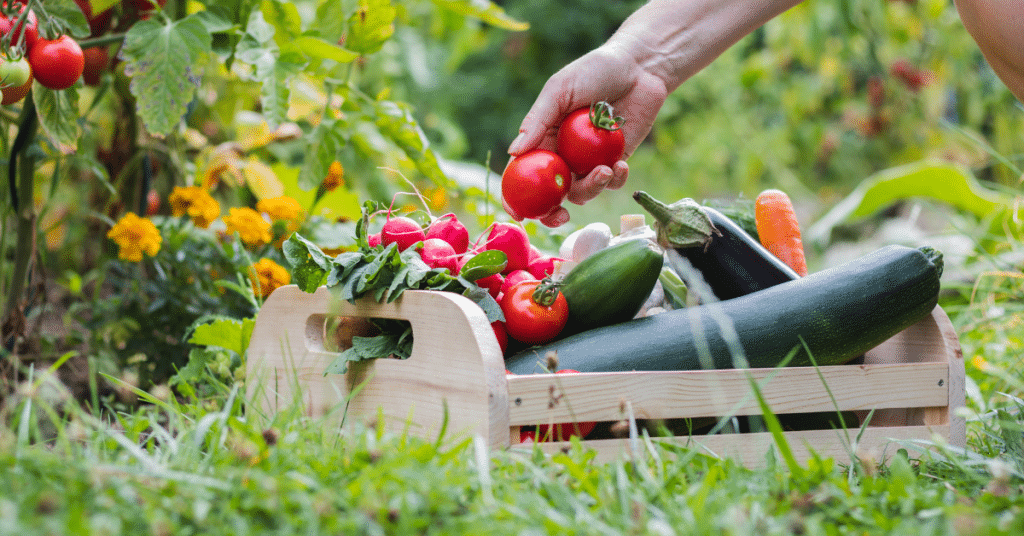The Benefits of Organic Gardening: Why Start an Organic Garden Today?

Are you a budding gardener looking to embark on a new and rewarding journey? Imagine having access to fresh, flavorful produce and organic foods in your backyard while contributing to your health and the environment. Starting an organic garden might be just the adventure you've been waiting for! This article will explore the wonderful world of organic gardening and uncover the many surprising benefits of gardening that await you.
Understanding Organic Gardening
Before we dive into the benefits, let's take a moment to understand what organic gardening is all about. Organic gardening is a natural approach to cultivating plants and producing healthier food without chemical fertilizers, pesticides, herbicides, and artificial fertilizers. Instead, it embraces the wisdom of nature, working in harmony with the ecosystem to create a sustainable and healthy environment for plants to thrive by using organic fertilizers.
Imagine your garden as a bustling community where each plant, insect, and microorganism has a vital role. By nurturing this ecosystem, you allow nature to do its magic, promoting balanced growth and minimizing the need for harmful interventions. By simply using your organic waste, you are nurturing your garden organically. Creating a compost pile using your food waste and yard waste makes your soil healthy and give your plants essential nutrients to thrive without synthetic fertilizers and pesticides.
The Health Benefits of Organic Gardening
Now, let's talk about your health and the health of your loved ones. Organic gardening offers a myriad of benefits that contribute to your well-being. One of the most significant advantages lies in the absence of harmful chemicals commonly found in conventionally grown produce.
You can say goodbye to those pesky pesticides when you grow organic fruits, vegetables, and herbs. Instead, you embrace nature's protection methods, such as companion planting and beneficial insects, to prevent pests and diseases. This means the produce you harvest is free from harmful residues, reducing exposure to potentially harmful chemicals.
But that's not all. Organic food is known to be more nutritious. Nurturing the soil with organic matter and allowing plants to grow naturally enhances their nutrient content. So, when you bite into that juicy tomato or enjoy a crisp salad from your garden, you're getting a flavor-packed, nutrient-rich meal that supports your overall well-being.
Not only does organic gardening benefit your body, but it also provides an opportunity for physical activity and stress reduction. Gardening is a fantastic way to stay active, whether digging, planting, or tending to your plants. The fresh air, sunlight, and connection with nature rejuvenate your mind and soul, helping to reduce stress and promote a sense of calm and fulfillment.
Research has shown that spending time in nature and engaging in gardening activities can positively affect mental health. It can alleviate symptoms of anxiety and depression, improve mood, and enhance overall psychological well-being. As you immerse yourself in the rhythm of nature, you'll find solace and peace amidst the greenery of your organic garden.
Moreover, organic gardening provides an excellent opportunity to teach your children about healthy eating and environmental stewardship. By involving them in growing organic food, you instill a love for nature, understanding of where food comes from, and the benefits of making sustainable choices.
So, by starting an organic garden, you nourish your body with wholesome, chemical-free produce, cultivate a deeper connection with nature, and promote a healthier lifestyle for yourself and your family.
Environmental Benefits of Organic Gardening
Now, let's shift our focus to the environment. By embracing organic gardening practices, you become a champion of sustainability and conservation and will be a certified organic gardener. Traditional gardening methods often rely on synthetic fertilizers and pesticides, which can harm our precious ecosystems.
Organic gardening, on the other hand, takes a different path. By avoiding chemical pesticides, you help reduce soil and water pollution. Harmful substances can leach into the ground, affecting your garden and nearby water sources. By opting for organic methods, you contribute to cleaner, healthier soil and water, safeguarding the delicate balance of nature.
Furthermore, organic gardening promotes biodiversity. By cultivating a diverse range of plants and creating a welcoming environment for beneficial insects, birds, and other wildlife, you create a haven for nature's helpers. Ladybugs and bees become your allies, pollinating your plants and controlling pests. It's a harmonious dance where every creature has a role to play.
But the benefits don't stop there. Organic gardening also plays a vital role in combating climate change. By avoiding the use of synthetic chemicals, you reduce the release of greenhouse gases into the atmosphere. Additionally, organic practices prioritize soil health, which acts as a carbon sink, effectively removing carbon dioxide from the air and storing it underground.
As you nurture your organic garden, you are actively participating in mitigating the impacts of climate change. Each seed you sow, each plant you tend, contributes to preserving our planet for future generations.
Moreover, organic gardening serves as an inspiration and a catalyst for change. As you share your experiences and knowledge with others, you encourage them to embrace organic practices and create their own eco-friendly havens. Together, we can create a network of organic gardens that significantly impact the environment.
By choosing organic gardening, you cultivate a beautiful and productive garden and become an agent of change. Working hand in hand with nature to create a healthier, greener planet while growing your own food.
Now that you know the incredible environmental benefits of organic gardening, it's time to take the leap and start your own organic garden. In the next part of our series, we'll provide practical tips and guidance on getting started on this rewarding journey. Stay tuned and be part of the organic gardeners community!
